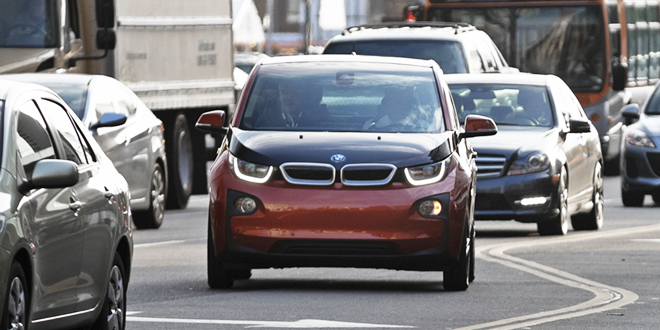Pretty much ever since the current generation of EVs began to show up on the roads, automakers and government regulators have been talking about requiring the vehicles to make some sort of artificial noise when traveling at low speeds, for the safety of pedestrians.
The federal Pedestrian Safety Enhancement Act was signed into law in 2011, but there is still no requirement for EVs to have sound generators. The National Highway Traffic Safety Administration has drawn up a Proposed Rule for the sounds, which will only come into force three years after being finalized.
Now, responding to a request from automakers, who aren’t happy with some of the details of the Proposed Rule, the NHTSA has agreed to push back the date for a final ruling to the end of this year, meaning that compliance will not be required until 2018.
Meanwhile, some EVs have pedestrian alert systems and some don’t. Some are driver-selectable, and some aren’t.
The National Federation of the Blind has led the effort to get uniform regulations in place. “The blind, like all pedestrians, must be able to travel to work, to school, to church, and to other places in our communities, and we must be able to hear vehicles in order to do so,” said Dr. Marc Maurer, President of the NFB, in 2011.
However, the blind are not the only people who may be in danger of being silently bumped off. According to NHTSA and the Highway Loss Data Institute, studies have shown that EVs and hybrids are 20 to 100 percent more likely to hit a pedestrian than are legacy vehicles.
Source: AutoblogGreen, Edmunds



















































































